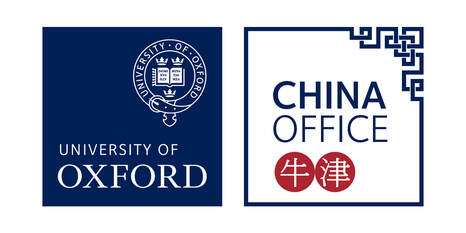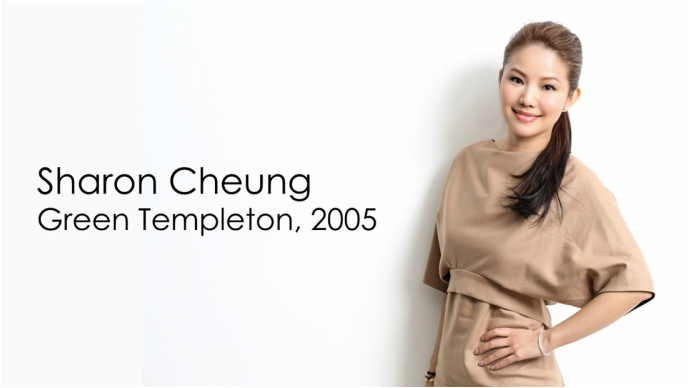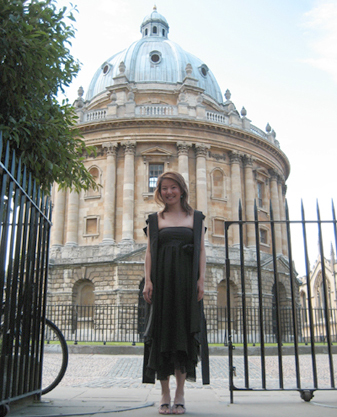Encounters with Alumni from Greater China
Sharon Cheung is a journalist with over 20 years’ experience in the media industry. She is a graduate of the Chinese University of Hong Kong and received a Chevening Scholarship to the University of Oxford, where she studied the Journalism Fellow Programme at the Reuters Institute for the Study of Journalism. In May 2015, she set up the Lion Rock Spirit Fellowship for journalists from Hong Kong to pursue the Reuters Institute's Journalism Fellowship Programme at the University of Oxford.
In her career, she has reported and served as anchor for the South China Morning Post, Hong Kong Cable Television News and Radio Television Hong Kong. More recently, she was Senior Vice-President of Media Asia Holdings, in charge of the group’s marketing and new media development. Sharon is currently running her own media strategy company, YiJie , and she is also a columnist for the Hong Kong Economic Journal, and is a published author of both fiction and non-fiction, including East Meets West: a cultural diary of life at Oxford. Sharon has served as a Director of the Hong Kong Journalists’ Association and a lecturer at the University of Hong Kong. Sharon will be teaching at School of Journalism and Communication in the Chinese University of Hong Kong in coming September. In 2013, she was awarded the Most Outstanding Professional Woman Award by JCI City Lady.
In her career, she has reported and served as anchor for the South China Morning Post, Hong Kong Cable Television News and Radio Television Hong Kong. More recently, she was Senior Vice-President of Media Asia Holdings, in charge of the group’s marketing and new media development. Sharon is currently running her own media strategy company, YiJie , and she is also a columnist for the Hong Kong Economic Journal, and is a published author of both fiction and non-fiction, including East Meets West: a cultural diary of life at Oxford. Sharon has served as a Director of the Hong Kong Journalists’ Association and a lecturer at the University of Hong Kong. Sharon will be teaching at School of Journalism and Communication in the Chinese University of Hong Kong in coming September. In 2013, she was awarded the Most Outstanding Professional Woman Award by JCI City Lady.
|
What are your most cherished memories of Oxford?
Meeting scholars and friends all over the world is one of the most cherished experience in Oxford. I am very interested in understanding Muslim culture and their religion, however, I don’t have much chance to get to know them more in Hong Kong because almost all my friends and work colleagues in HK are Chinese. But in Oxford, I have made friends from Iran, Pakistan, Albania…and many other muslim countries. They invited me to their religious assembly, gathering whereas I get to know them better. Frankly, we are very different in language, religious belief and political belief, so it is extremely important for us to have a broad mind and a warm heart to accept differences. Diversity isn’t just black or white. Diversity may be the hardest thing for a society to live with, and perhaps the most dangerous thing for a society to be without. |
Why did you choose to study at Oxford? How did the University nurture your interests and talents?
Choosing to study in Oxford is one of most correct decisions I have made! It really impacted me. One of the most interesting class I took in Oxford was to study the impact of Internet in shaping the world’s social and political landscape. I took the lectures from Oxford Internet Institute (OII). I understand internet probably will be the most powerful tool in changing the world in this century, so I actively explore my opportunity online after returning to HK. I started my own interent company six years ago and now I am one of the most influential opinion leaders online in HK.
What did you find most challenging about working as a journalist in Hong Kong and China? And what aspects of it the most rewarding?
The most challenging thing is the change of political atmosphere. However, defending press freedom and freedom of speech is the mission of journalists. We have to defend it no matter what the situation is.
Why did you choose to support the Reuters Journalism Institute at Oxford?
I think the best way to support HK journalists is to support their continuous education. Anchored in the recognition of the key role of independent media in open societies and the power of information in the modern world, the Institute aims to serve as the leading forum for a productive engagement between scholars from a wide range of disciplines and the practitioners of journalism. It brings the depth and rigour of academic scholarship of the highest standards to major issues of relevance to the world of news media. It is global in its perspective and in the content of its activities.
What advice would you give to journalists from Hong Kong embarking on this course?
Journalists make the first draft of history. I need no convincing of the importance of their work and I'm delighted that I can be one of those to support their journalistic work. My advice to them is to explore as much as you can, to learn as much as you can, and take a good break during your stay in Oxford, enjoy the University and enjoy England.
What do you hope to accomplish in the future?
One of my plans is to extend the Fellowship of Lion Rock Spirit to China, then to the rest of the world. I really hope all the journalists in the world will know Hongkonger’s Lion Rock Sprit. It is the core values of Hong Kong: fearlessness and the "never give up” attitude in the face of challenges and create miracles from the impossible.
Interviewed in July 2015
The most challenging thing is the change of political atmosphere. However, defending press freedom and freedom of speech is the mission of journalists. We have to defend it no matter what the situation is.
Why did you choose to support the Reuters Journalism Institute at Oxford?
I think the best way to support HK journalists is to support their continuous education. Anchored in the recognition of the key role of independent media in open societies and the power of information in the modern world, the Institute aims to serve as the leading forum for a productive engagement between scholars from a wide range of disciplines and the practitioners of journalism. It brings the depth and rigour of academic scholarship of the highest standards to major issues of relevance to the world of news media. It is global in its perspective and in the content of its activities.
What advice would you give to journalists from Hong Kong embarking on this course?
Journalists make the first draft of history. I need no convincing of the importance of their work and I'm delighted that I can be one of those to support their journalistic work. My advice to them is to explore as much as you can, to learn as much as you can, and take a good break during your stay in Oxford, enjoy the University and enjoy England.
What do you hope to accomplish in the future?
One of my plans is to extend the Fellowship of Lion Rock Spirit to China, then to the rest of the world. I really hope all the journalists in the world will know Hongkonger’s Lion Rock Sprit. It is the core values of Hong Kong: fearlessness and the "never give up” attitude in the face of challenges and create miracles from the impossible.
Interviewed in July 2015
|
The Reuters Institute for the Study of Journalism at the University of Oxford serves as the leading forum for a productive engagement between scholars from a wide range of disciplines and the practitioners of journalism. It brings the depth and rigour of academic scholarship of the highest standards to major issues of relevance to the world of news media. It is global in its perspective and in the content of its activities. The Journalism Fellowship Programme is aimed at giving journalists new insights by allowing them the opportunity to carry out in-depth research into subjects that are relevant to the media industry.
|



